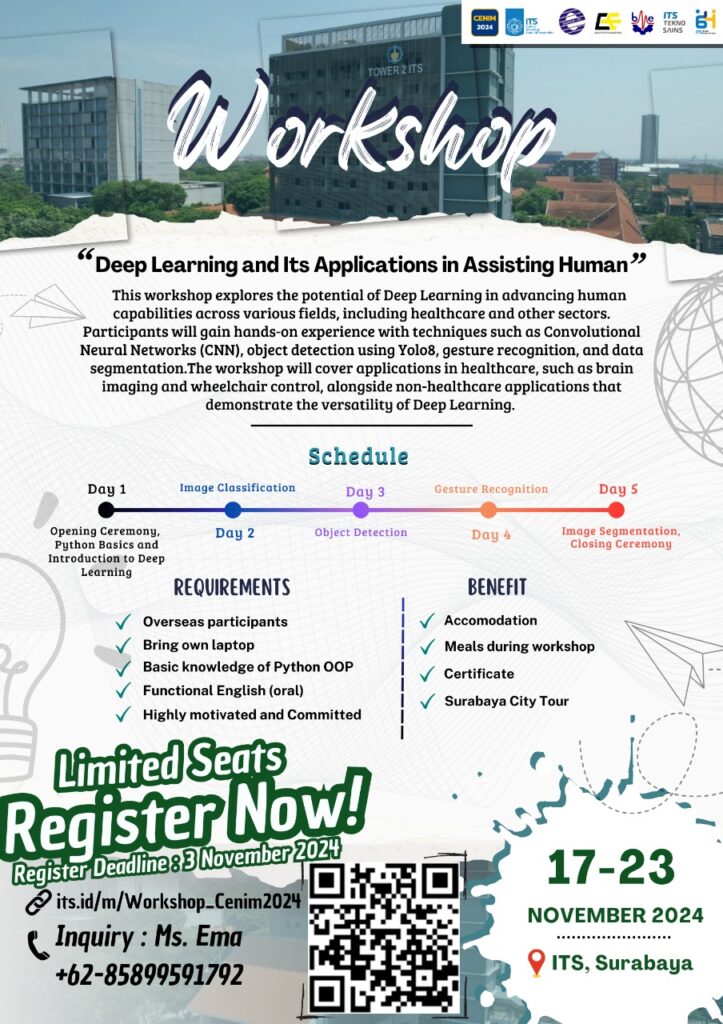Overview
This workshop delves into the transformative role of Deep Learning in enhancing human abilities across various domains, including healthcare and beyond. Participants will engage in hands-on sessions covering techniques such as Convolutional Neural Networks (CNN), object detection with YOLOv8, gesture recognition, and data segmentation. The workshop emphasizes practical applications, including brain imaging and wheelchair control in healthcare, while also exploring versatile uses in other fields.
Requirements
Overseas Participants
Bring your own laptop
Basic understanding of Python (OOP)
Proficiency in functional English (spoken)
High level of motivation and commitment
Benefits
Free Accommodation during workshop (6 Nights)
Free Meals included during the workshop
Free Certificate
Free Surabaya City Tour
Bromo Mount Tour (Excluded)
Schedule
Day 1: Python Basics and Introduction to CNN
1. Python Basics
a. Introduction to Python for machine learning and image processing
b. Hands-on exercises using available Python modules
Introduction to CNN
a. Basics of Convolutional Neural Networks (CNN)
b. CNN architecture and principles
c. Practical session using CNN modules on real-world data
Day 2: CNN for Image Classification
1. CNN for Image Classification
a. Applying CNN for image classification in real-world cases, including medical (brain imaging) and non-medical fields
b. Hands-on session: Image classification with CNN using real datasets
Preparing Data for Classification
a. Preparing training data for classification tasks
b. Techniques for data annotation and preprocessing, using real data
Day 3: Object Detection
1. Object Detection using YOLOv8
a. Introduction to object detection and the YOLOv8 architecture
b. Real-world applications in both medical and non-medical fields
c. Practical session: Object detection using YOLOv8 on real-world cases
Object Detection Practice
a. Exercises on detecting objects from real-world medical and non-medical data
Day 4: Gesture Recognition
1. Gesture Recognition
a. Introduction to gesture recognition and its applications in assistive technology, such as real-time wheelchair control
b. Practical session: Gesture recognition using real-world case studies
Pose Classification
a. Pose classification using datasets based on real-world tasks
b. Hands-on session: Pose classification for control and analysis in practical applications
Day 5: Segmentation
1. Segmentation Theory
a. Overview of segmentation techniques with real-world applications
Theoretical Segmentation Exercises
a. Discussion and practice based on segmentation theory applied to real-world cases
Segmentation using U-Net
a. Application of U-Net for segmentation in real-world medical (brain imaging) and non-medical scenarios
Inquiry: Contact Ms. EMA at +62 858-9959-1792
LIMITED SEATS!!!

